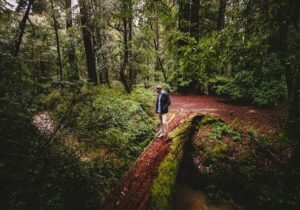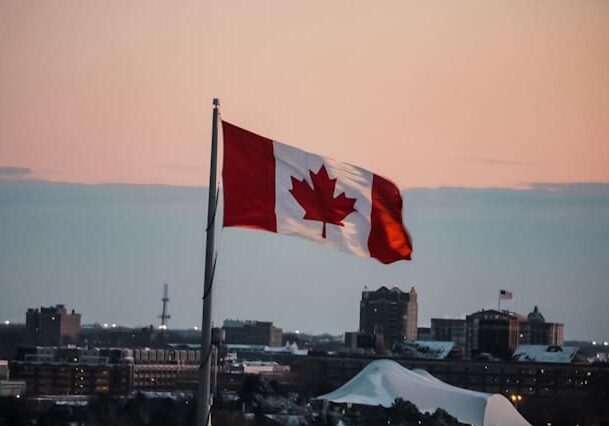Wondering, “Is Canada safe?” — then you’ll be glad to find out that Canada is one of the safest countries on the planet due to its low crime rates and high quality of life. Local authorities pay close attention to public safety to reduce the risk of petty crime and other potential risks.
However, you still have to take adequate precautions, especially in tourist areas, large cities, urban areas, and mountainous regions. This guide provides a unique set of safety measures and other sources to keep you safe.
Read more to learn about:
Canada Safety Overview
Canada is among the safest countries in the world, with quality healthcare and lower crime rates. Although petty crimes, such as pickpocketing, are recorded mainly in crowded streets or tourist areas, the nation’s violent crime rate is low. According to our Global Passport Index, Canada is remarkably stable and maintains one of the top positions in terms of quality of life.
Canadian culture can be quite fascinating, whether you are a solo traveler, an entrepreneur, an investor, or traveling with a family member. The vast majority of places are relatively safe, especially during the summer months.
Local authorities are dedicated to reducing the risk of violent crime, petty crime, and wild animals in forested areas. You can monitor local media for any local restrictions or precautions to carry out and places to avoid in case of extreme weather.
Overall safety |
Very high. Canada consistently ranks among the safest countries in the world. |
|
Crime rate |
Low to moderate. Winnipeg city in Manitoba has the highest violent crime rate in the country. |
|
Health and medical care |
Excellent healthcare system. Emergency services are widely available. |
|
Transportation safety |
Very safe. Smooth roads and reliable public transport. |
|
Wildlife risk |
Occasional. For your safety, hike during the day and check the trail conditions and the weather before traveling. |
Important safety resources and contacts in Canada
Here is a list of emergency phone numbers of some organizations and local authorities in case of an emergency. Local public services can be found across provinces and territories.
Province |
Authority |
|
British Columbia |
911 (or local police); Canadian Coast Guard (1-800-889-8852); Provincial Emergency Program (1-800-663-3456) |
|
Alberta |
1-800-272-9600 Alberta Transportation |
|
Nova Scotia |
911 (or local police); Canadian Coast Guard (1-800-565-1633) |
|
Prince Edward Island |
911 (or local police); Canadian Coast Guard (1-800-565-1633) |
|
New Brunswick |
911 (or local police); Canadian Coast Guard (1-800-565-1633) |
|
Northwest Territories |
911 (or local police); Canadian Coast Guard (1-800-889-8852); relevant authorities (1-867-920-8130) |
|
Yukon Territory |
Yukon Territory 911 (or local police); Canadian Coast Guard (1-800-889-8852); relevant authorities (1-867-667-7244) |
|
Quebec |
911 (or local police); Canadian Coast Guard (1-800-363-4735) |
Emergency assistance is available through local hospitals and provincial health services if you face a medical emergency or need a medical evacuation while traveling. Dual nationals should have travel insurance, which includes emergency assistance, especially if they plan to visit rarely targeted remote areas.
Key Safety Considerations
Overall, Canada is relatively safe. This country is a comfortable place to visit if you are vigilant of your surroundings, take the necessary precautions, and follow standard safety practices. Foreign nationals in Canada require minimal degree of caution.
Crime
To reduce the risk of petty crime:
- Don’t leave your luggage, personal belongings, bag, or purse unattended, especially on public transportation.
- Store your passport and valuables in a safe location.
- Keep your luggage in the main storage or cargo compartment of unattended vehicles.
- Carry a copy of your ID or a valid passport.
- Leave important documents with friends or family.
Wildlife
 To stay safe when camping, hiking, or exploring forested areas:
To stay safe when camping, hiking, or exploring forested areas:
- Keep a safe distance from wildlife, birds, and marine animals.
- Stay on marked trails and use local maps for detailed information.
- Carry bear spray and make sure it is functional.
- Wear protective clothing during the summer months.
- Travel during the day in tight groups.
- Take your food and rubbish with you to avoid attracting animals on the trail.
- Stay away from nests or young animals in remote areas.
- Check with local guides to understand your surroundings.
- Respect park regulations, local restrictions, and avoid closed trails.
- Carry travel insurance with you.
Extreme weather and natural disasters
To stay safe in Canada, you must know how to respond and prepare for natural disasters and extreme weather conditions. These include:
- Hurricanes — Certain areas around the coast are exposed to hurricanes, mainly from July to November. Monitor local media to get up-to-date information.
- Avalanches — Some mountain regions, including British Columbia and Alberta, can experience extreme cold and avalanches in winter. To follow avalanche advice, check the Canadian Foundation website.
- Earthquakes — Earthquakes are common in western Canada, especially along the coast of British Columbia. Most earthquakes are small, but damaging quakes can also happen. Because of this risk, cities like Victoria and Vancouver have emergency plans and building codes.
- Flooding — Regions like Nova Scotia have unpredictable weather with potential for flooding, which can disrupt local public services and cause power outages in urban areas.
- Heat waves — Heat waves are getting more frequent across some tourist areas and public places. According to Canadian authorities, extreme heat takes a toll on health Canada systems and quality of life. Wildfires can affect air quality and halt travel plans.
- Summer thunderstorms — Thunderstorms in the summer happen in various regions across Canada, mainly from April to September. Citizens and travelers can experience property damage, so it’s a good idea to have travel insurance.
- Tsunamis — In Canada, tsunamis are rare, compared to some other countries, but can happen. Since the start of the 20th century, one tsunami has been reported every 15 to 20 years. Dangerous weather conditions can cause delays at any Canadian airport.
- Tornadoes — The peak tornado season is from June to July. Yet, they can also happen from May to September. They include the Alberta region, south-east Quebec, south Ontario, western Canada, and the interior of British Columbia. These natural disasters can severely disrupt local public services and cause medical emergencies. So, it is best to follow evacuation orders and stay informed.
- Winter storms — Winter in Canada can be dangerous due to hail, blizzards, extreme cold, and freezing rain. It’s best to abide by local laws, follow evacuation orders, stay informed, and avoid areas with an active winter storm.
Arctic travel
Some regions and remote areas in Canada are in the Arctic Circle and prone to extreme weather conditions. The Canadian government advises Citizens and travelers to take precautions against avalanches, polar bear attacks, glaciers, severe storms, and unpredictable winters. Travel insurance can be highly beneficial when traveling to frigid locations.
Canada Crime Rate and Safety Across Provinces
Canada ranks 11th on the Global Peace Index, meaning it is a relatively safe country with stable local laws. The crime and safety indexes across the country evaluate Canada’s safety level. A high crime index indicates significant crime levels, while a high safety index indicates reliable safety conditions.
Location |
Crime Index |
Safety Index |
|
Toronto, Ontario |
43.4 |
56.6 |
|
Vancouver, British Columbia |
43.0 |
57.0 |
|
Winnipeg, Manitoba |
60.5 |
39.5 |
|
Victoria, British Columbia |
41.3 |
58.7 |
|
Halifax, Nova Scotia |
41.0 |
59.0 |
|
Quebec City, Quebec |
22.2 |
77.8 |
Source: Numbeo
Is Canada safe for Americans?
Canada is very safe for Americans and foreign nationals. The country is known for its low crime rates and lower risk of gun violence compared to the United States. The rates of violent crime, mainly homicides, in Canada are significantly lower than in the U.S.
However, major cities like Vancouver and Toronto have higher property crime rates than L.A. and New York. Petty crime, such as bag snatching and pocket theft, can happen in tourist areas and urban centers, like Nova Scotia, British Columbia, and Ontario.
Travelers from the U.S. should stay vigilant and avoid leaving valuables or personal belongings exposed. It’s best to store important documents, such as passports, in a secure place. Local guides suggest practicing basic precautions against passport theft. All in all, Canada is a great market for doing business due to stable local laws. Many foreigners invest in Canada to diversify their assets and to gain permanent residence.
Driving in Canada
Canada has smooth roads and great air quality, perfect for road travel. However, driving in the winter requires additional safety measures due to potential avalanches and snowstorms. Based on the current road conditions across affected areas, make sure to carry snow tyres. You should stay informed of potential risks from extreme weather and have adequate travel insurance. Carry emergency supplies with you, follow local traffic laws, and check exit requirements for your home country before departing from Canada.
Vaccine Considerations for Canada
Canadian authorities may require or recommend some vaccines for Canada. The ones to focus on include:
- hepatitis B
- influenza
- hepatitis A
- rabies
- pneumonia
- chickenpox
- COVID-19
- Polio
- shingles
- meningitis
- Tdap
- Measles
- mumps and rubella (MMR)
Health Canada recommends staying up to date on routine vaccinations before making travel plans.
Health Precautions
These tips can help you stay safe and healthy on your trip to Canada:
- Prevent bug bites: Cover your skin with long pants, sleeves, and hats. Travel advisories often suggest using insect repellent outside during the summer months.
- Eat and drink safely: Avoid drinking contaminated water and focus on basic hygiene and sanitation measures in large public gatherings.
- Stay away from animals: Most local wildlife doesn’t pose a threat. However, animals can turn violent with little warning when they are protecting their territory or young.
- Prepare for medical emergencies: Carry a first-aid kit for quick medical treatment to effectively respond to any injury or illness. Visit medical facilities in case of serious injuries.
Canada Safety at Night
Canada is reasonably safe at night due to lower rates of violent crime. Most of the population feels safe walking after dark, especially on main streets. But it is best to avoid walking alone at night in downtown areas and small alleys between tall buildings, since petty crime can happen.
Canada also has vast unexplored wilderness, and wildlife in forested areas can be dangerous at night. If you plan to explore mountainous regions, focus on hiking during the day and camping in a secure place. Stay informed of road conditions, closed trails, and extreme weather, like freezing rain.
Places to avoid in Canada
The local media often encourages citizens and travelers to practice basic safety measures in high-risk locations. For example, keep your bags closed and locked in popular tourist areas across Toronto, Ontario, or Victoria, British Columbia. Avoid areas like dark alleys and abandoned buildings, and stick to the main streets with enough lighting. Don’t forget to stay aware of your surroundings, secure your valuables, and protect yourself from passport theft.


